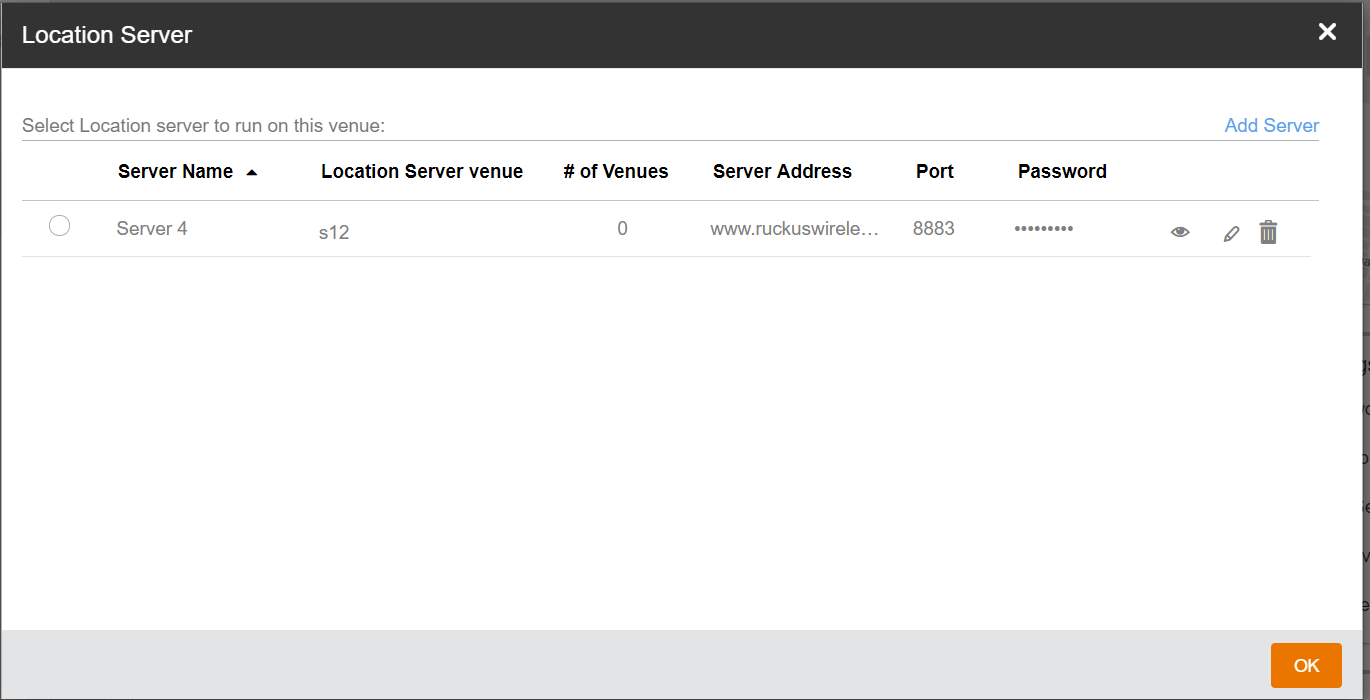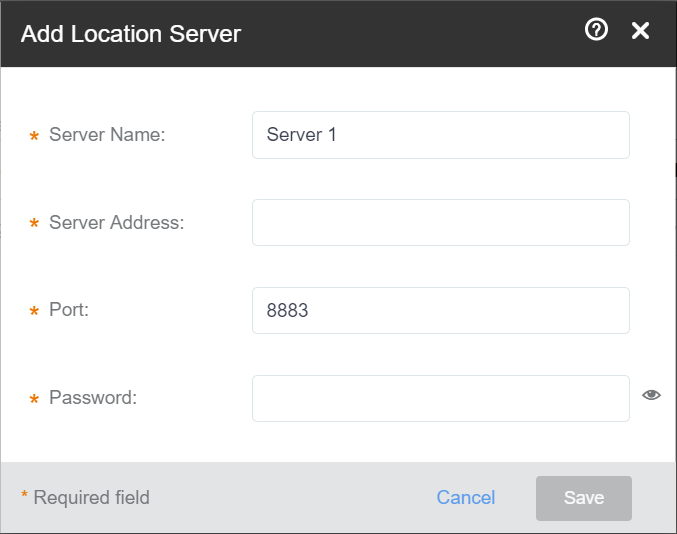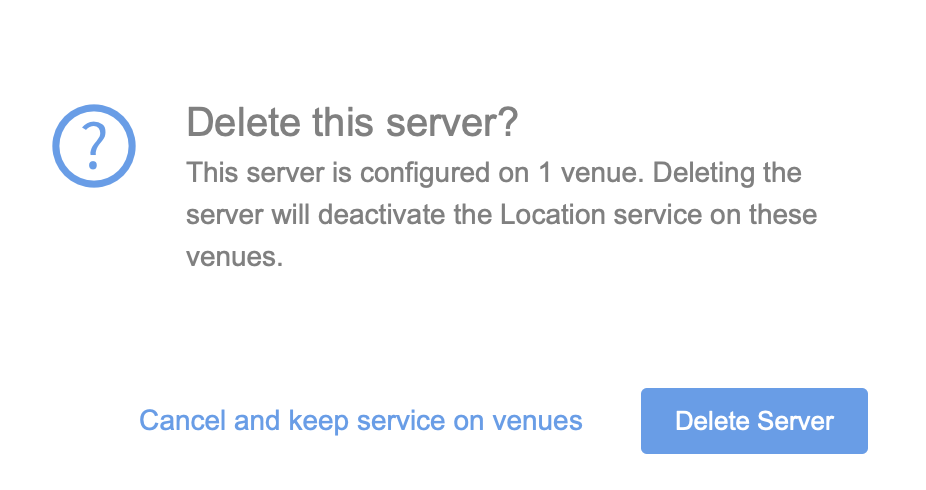Location services gives carriers, service providers, and enterprises the ability to deliver a wide range of location-based value-added services that can help increase profitability while enhancing the online experiences of the users.
Ruckus SPoT ™ Smart Positioning Technology is available in flexible deployment options: a virtualized on-premise instance or a cloud hosted service. A number of third-party location service provider partners are available.
NOTE
The licensing is separate for using Ruckus SPoT or any external third-party location server partner. Licensing is not included with the base Ruckus Cloud subscription.
Complete the following steps to configure the External location server of a venue.
-
From the navigation pane, click
Venues.
-
In the
Venue Settings section, at the lower-right corner of the page, set the
Location Server button to
ON.
The
Location Server dialog box is displayed.
Figure 14
Location Server Dialog Box

-
Click
Add Server.
The
Add Location Server dialog box is displayed.
-
Configure the location server:
Figure 15
Add Location Server

- Server Name: Enter the name of the server (up to 32 alphanumeric characters).
- Server Address: Enter a valid IP address or URL (up to 252 characters).
- Port: Enter the port number. The valid range is from 1 through 65535. The default value is 8883.
- Password: Enter the password for the location server. The password must be a minimum of 8 characters and up to 63 characters in length.
NOTE
The password is automatically generated in SPoT ™ when you create the venue configuration.
-
Click
Save to add the location server.
Ruckus Cloud automatically generates the venue name, which should match the venue name in your SPoT ™ configuration.
-
Select the server name to indicate the location server to run in the current venue and click
OK.
When you select a location server, you are prompted to copy the venue information to the location server configuration.
Figure 16
Copying Location Server Information to the SPoT ™ Configuration

-
(Optional) Click the
Edit (pencil) icon to edit the location server information.
-
(Optional) Click the
Delete(trash can) icon to delete the location server configuration.
When you attempt to delete a location server, a confirmation message is displayed.
Figure 17
Delete Server Confirmation Message





